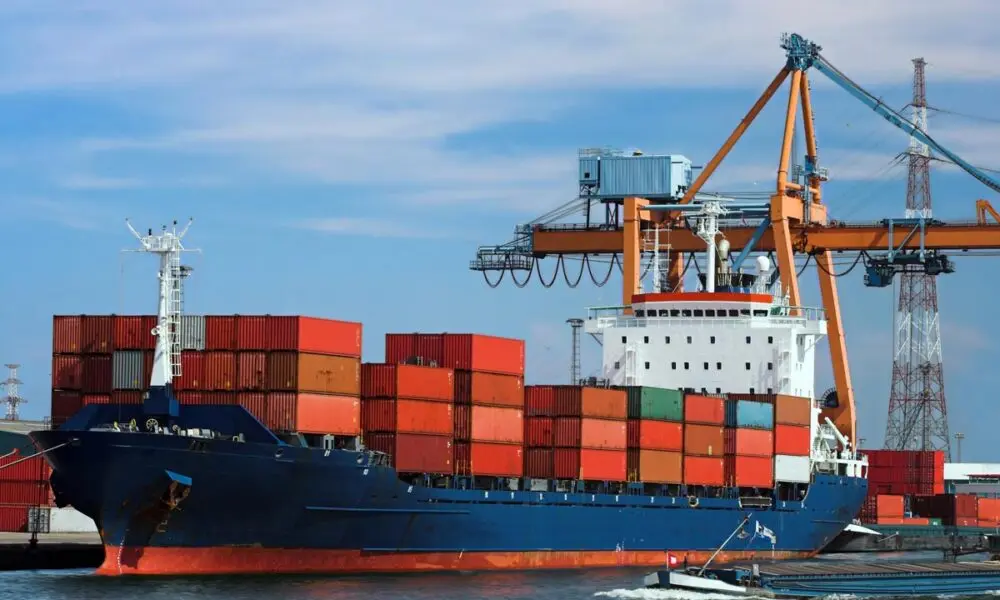NESG set out to navigate challenges and opportunities in Nigeria’s maritime industry in a webinar prior to the 29th Nigerian Economic Summit.
The Nigerian Economic Summit Group (NESG) convened a pre-29th Nigerian Economic Summit (NES29) webinar, centered on the theme “Sailing to Success: Harnessing Nigeria’s Maritime Potential.” Delving into the vast potential of Nigeria’s maritime sector, this event shed light on the obstacles and opportunities it faces while emphasizing its pivotal role in driving economic growth and transformation.
NESG – Navigating Nigeria’s maritime challenges
Nigeria’s maritime sector, despite its expansive coastline, grapples with multifaceted challenges that necessitate strategic intervention, according to NESG. Piracy, illegal fishing, inadequate infrastructure, and regulatory bottlenecks have collectively impeded the sector’s full potential realization.
Unlocking prosperity
Nnanna Ude, a Board member of the NESG, underscored the critical importance of maritime activities in facilitating global trade and economic growth. With Nigeria’s strategic geographical position along the Gulf of Guinea and an extensive coastline stretching approximately 853 kilometers, the nation stands poised to leverage maritime trade and economic development.
However, a critical challenge remains the absence of comprehensive data, hindering policymakers from fully grasping the sector’s contribution to Nigeria’s GDP. Mr. Ude commended the establishment of a dedicated marine and blue economy ministry, marking a significant shift in government approach and signaling potential for the sector to catalyze Nigeria’s economic transformation and development.
Nigeria’s coastal advantage
Princess Ronke Kosoko, Chief Operating Officer of Maritime Innovations Hub, emphasized West Africa’s pivotal role in maritime trade, owing to its strategic location for global goods transportation. Nigeria’s extensive coastline offers abundant opportunities for maritime trade and development, she said. To unlock this potential, addressing issues such as illegal fishing, infrastructure deficits, and regulatory hurdles becomes paramount.
A commitment to prosperity
In his keynote address, Senate Committee Chairman on Marine Transport, Senator Wasiu Eshilokun Sanni, reaffirmed the committee’s dedication to identifying avenues within the maritime sector that align with Nigeria’s goals of economic diversification. He stressed the importance of attracting private investments to inland waterways and called for collaborative efforts from all stakeholders to foster the sector’s growth and development.
Financing the future
During the panel session titled “Deconstructing the Financing Conundrum; Innovating out of Long-Term Financial Constraints in the Maritime and Shipping Sector,” Dr. George Moghalu, represented by Mrs. Sarah Buraimoh, the Area Manager Lagos of Nigerian Inland Waterways Authority (NIWA), highlighted the substantial evidence pointing to the maritime sector’s potential to significantly contribute to Nigeria’s economic diversification and inclusivity. In 2018, the Nigerian Maritime Administration and Safety Agency (NIMASA) reported that the maritime sector contributed approximately 5% to the country’s Gross Domestic Product (GDP) and generated employment opportunities for thousands of Nigerians.
Cargo movement and economic constraints
Mr. Mohammed Bello Koko, Managing Director of Nigerian Ports Authority (NPA), represented by Engineer Durowaiye Ayodele, the General Manager of Operations, shed light on the maritime industry’s pivotal role in cargo movement. Approximately 70 to 80% of cargo is transported via the sea due to economic considerations. Nigeria boasts six ports and a private port in Lekki, with Lagos ports handling 60 to 70% of trade vessels. This preference is attributed to the robust security and infrastructural support services available around the ports, coupled with Lagos’ status as the commercial hub where most industries are concentrated, primarily between Lagos and Ogun states.
For more trade and business news, visit our two dedicated portals.
